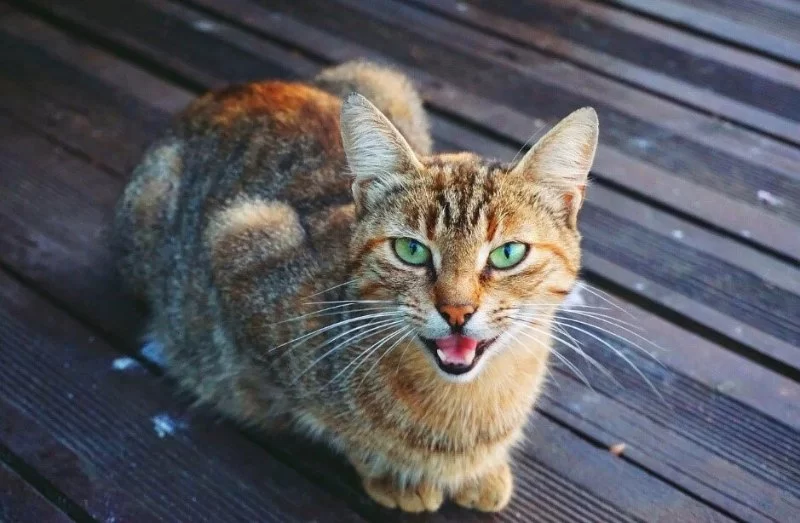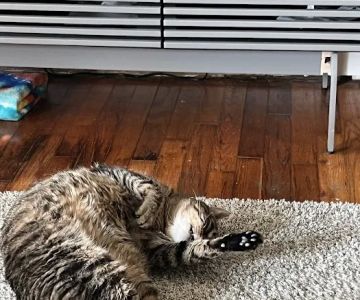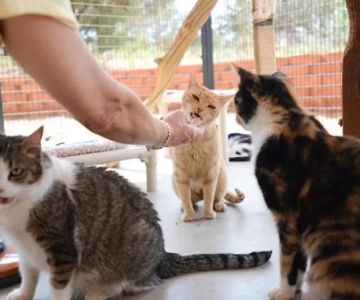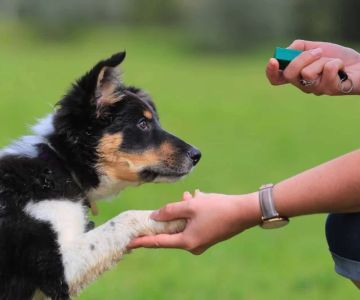1. Understanding Excessive Meowing in Cats
Anyone who has a cat knows that they can be quite vocal at times. But when your feline friend starts meowing excessively, it can become overwhelming. As a cat owner, you may wonder, "Why do cats meow excessively?" Understanding the reasons behind this behavior is essential for both your cat’s well-being and your own peace of mind. In this article, we'll explore why cats meow, what excessive meowing might indicate, and provide solutions to address this issue.
1.1 The Nature of Cat Meowing
Meowing is a natural form of communication for cats, especially with humans. Unlike other animals, adult cats typically reserve meowing for their human companions rather than other animals. It’s important to recognize that not all meowing is problematic. However, when the meowing becomes persistent or disruptive, it can indicate that something more is going on. Let’s look at some common reasons why your cat might be meowing excessively.
2. Common Reasons Behind Excessive Meowing
There are several reasons why your cat might meow excessively. Some are harmless, while others could be a sign of underlying health or behavioral issues. Below, we’ll delve into some of the most common causes.
2.1 Seeking Attention or Affection
One of the most common reasons for excessive meowing is that your cat is simply seeking attention. Cats are known to be independent creatures, but they also need affection and social interaction. If your cat meows when you're near, it may be a sign that they want attention, petting, or companionship. If you’ve recently changed your daily routine, your cat might be meowing to get your attention, especially if you’ve been busier than usual.
2.2 Hunger or Thirst
Another reason cats might meow excessively is because they’re hungry or thirsty. Cats are creatures of habit and often meow when they expect to be fed, especially if they’ve learned that meowing gets them attention. If your cat starts meowing around feeding times, check to see if their food or water bowls are full. If their meowing seems to increase after meals, they might not be satisfied with the amount of food or water they’re getting.
2.3 Stress or Anxiety
Just like humans, cats can experience stress and anxiety. Changes in their environment, such as moving to a new house, a change in your schedule, or the addition of new people or pets, can cause anxiety and lead to excessive meowing. If your cat seems to be meowing more when you're not around or during times of stress, this could be a sign of separation anxiety or fear. A sudden change in their daily routine may trigger vocalizations as a way to cope with the stress.
2.4 Health Issues
Excessive meowing can also be a sign of an underlying health problem. Cats may meow excessively if they’re in pain, uncomfortable, or experiencing a medical issue. For example, urinary tract infections, dental problems, or even gastrointestinal discomfort can cause your cat to vocalize more than usual. If your cat’s meowing is accompanied by other symptoms like loss of appetite, lethargy, or changes in behavior, it’s essential to consult your veterinarian for a check-up.
2.5 Aging and Cognitive Dysfunction
Older cats, particularly those suffering from cognitive dysfunction syndrome (similar to dementia in humans), may start to meow excessively. This can be due to confusion, disorientation, or changes in their sleep patterns. If your senior cat has started meowing more frequently, it could be related to the aging process and the decline in their cognitive abilities. In such cases, it’s important to have a vet evaluate your pet's condition.
3. Solutions for Managing Excessive Meowing
Now that we’ve covered the reasons behind excessive meowing, let’s look at some practical solutions to help manage the behavior. In many cases, with patience and the right approach, you can reduce the amount of meowing and restore peace in your home.
3.1 Provide Regular Playtime and Attention
If your cat’s meowing is due to a desire for attention, providing them with regular playtime and affection can help. Engage your cat in interactive play sessions using toys that simulate prey, such as feather wands or laser pointers. This will give them a chance to burn off energy and feel more content. Additionally, spend quality time with your cat each day, petting them and giving them affection to strengthen your bond.
3.2 Ensure Proper Feeding and Hydration
Make sure your cat’s basic needs are being met. Ensure that they have access to fresh water and are being fed a balanced, nutritious diet. If your cat seems to be meowing excessively due to hunger, consider establishing a regular feeding schedule and providing smaller, more frequent meals throughout the day. This may help reduce their desire to meow for food.
3.3 Create a Calm and Comfortable Environment
If stress or anxiety is the cause of excessive meowing, creating a calming environment for your cat is essential. Try to minimize sudden changes in their routine, and provide a quiet space where they can retreat and relax. You can also try using calming products such as pheromone diffusers or sprays to reduce stress. If you have recently moved or made changes to the household, give your cat time to adjust.
3.4 Seek Veterinary Care
If your cat’s excessive meowing is linked to health issues, it’s essential to visit the vet for a thorough examination. A veterinarian will be able to rule out any medical conditions and provide treatment options. For older cats with cognitive dysfunction, your vet may suggest medications or supplements to help manage the symptoms.
4. When to Consult a Veterinarian
It’s important to remember that excessive meowing can sometimes signal serious health issues. If you notice any of the following signs, it’s time to consult with a veterinarian:
- Changes in eating or drinking habits
- Increased vocalization that seems out of character
- Signs of pain or discomfort
- Unexplained weight loss or lethargy
- Difficulty breathing or coughing
Your vet will be able to determine whether the excessive meowing is a symptom of a medical condition and provide appropriate treatment.
5. Conclusion
Excessive meowing in cats can be caused by a variety of factors, from simple attention-seeking behavior to more serious health issues. By paying attention to the context of the meowing and addressing the underlying cause, you can help your cat feel more comfortable and reduce the amount of vocalization. Always remember that if you’re concerned about your cat’s health or behavior, consulting with a vet, such as those at Hidden Brook Veterinary, is the best course of action to ensure your pet’s well-being.












